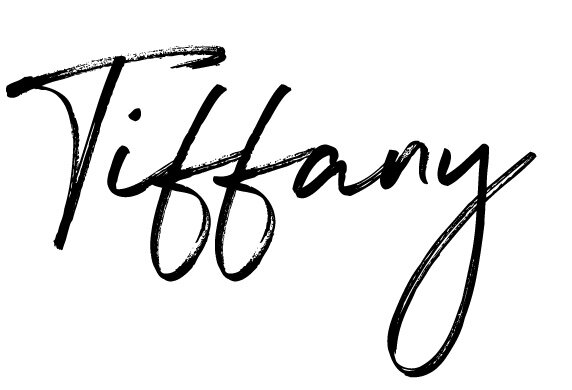How to Write a Query Letter That Wows Literary Agents + Template
You’ve got a great book, but now you have to write something that might feel even harder — a knockout query letter.
If you’re struggling to write your query and cursing their very existence, don’t worry, I completely agree. They suck.
They’re also a necessary evil, so today I’ll cover:
Why you need a killer query letter
I desperately wish I could say the query is nothing to fret over or that the brilliance of your book will shine through a so-so pitch. But I’d be lying. No matter how terrific your manuscript is, without a strong query, no agent is going to bother setting eyes on page one.
If that seems unfair, take a step back and look at it from their perspective. They skim the promotional emails in their slammed-full inbox just like you and I do. Don’t forget what your query is—a sales pitch.
One of the hardest things to get through a writer’s head—mine included—is that agents are not anything like teachers. When we submit a story or a pitch, it’s all too easy to imagine publishing gatekeepers sitting at their desk reviewing each submission like it’s a stack of essays to be graded.
We understand that they might deem our work unworthy, but what we forget is how unlikely they are to even read past the first sentence.
Lest you get upset, I’ll remind you again that not only do you do the same thing with your junk mail, you even do it with books.
How often have you stood at the bookstore and read a line or two of the book, or even just the back cover, before deciding it isn’t for you? And you’re only being asked to spend a few bucks and a few hours reading that book for pleasure. An agent is being asked to devote years of their life to your book and stake their livelihood on its success!
In my post Why You’re Not Hearing Back from Literary Agents, I explain the five main reasons agents will reject your book, and one of the most likely ones is that your query sucks. Even if the book itself is great.
I’ve had several clients hit a wall with agents until they rewrote their queries. Then, once their queries were dialed in, they started getting frequent requests without changing a word of the book!
So today, I want to talk about what agents are looking for as they skim your pitch + how to give it to them by using a template.
Is it formulaic? Yep. That’s by design. By clearly laying out the key points they expect to see in a standard format, you’re making the agent’s job easier. The structure of your query is not the place to be original!
What agents look for while skimming
A book that is:
Finished, if it’s fiction. (Nonfiction calls for a well-developed and convincing book proposal.)
Is in a genre they represent
Fits their taste in tone and style
Sounds like a compelling read
Is written by an author who shows professionalism and who can help publishers get word out
What do I mean by finished?
On the most basic level, finished means you’ve written to The End. Definitely don’t start pitching a novel if you’re not done.
Nonfiction can be sold on proposal, but you still need to lay out a summary of each chapter through the end.
Finished also means that the word count is within an acceptable range. For mainstream adult fiction, that’s generally between about 70,000 and 100,000 words. (Much more detail on word count in this post.)
Stray very far outside of that and you’re going to raise a red flag. Again, this sounds annoyingly formulaic, but these numbers aren’t arbitrary. A 50,000-word novel is usually not fully developed, and a 150,000-word novel is probably poorly edited and bogged down with filler.
Either way, if you’re way short or way long, you’re probably not finished.
The Secret to Getting an Agent's Attention
Personalize your opening. Your first few lines are where you can immediately show them you’re querying them for a reason and that your book is right for their list.
Appeal to an agent’s taste in your opening
Obviously, you already know not to waste an agent’s time, or yours, by pitching a romance novel to someone whose list is dominated by political thrillers or literary essay collections.
But there’s a lot more to it than that.
You want them to quickly see that you’ve written in a genre they represent, as well as a subgenre they regularly sell, and that the book is similar to other books on their list in tone or topic or style. You can determine that by researching agents’ sales histories, Manuscript Wish Lists, interviews etc.
Demonstrate that your book is a great read
I know it’s exceptionally hard to boil your book down to a paragraph or two, but it’s crucial to get this right.
There are two primary ways to do this.
Using only the most essential details, make it clear that you have a compelling protagonist, and make his or her story arc clear.
Be specific not generic
Besides cut-and-paste jobs blasted out indiscriminately all over New York, the second most common mistake I see authors make with their queries is that they focus on themes at the expense of story, saying things like “this is a story of love and loss” or “guilt and redemption.” Or they try to sell the book with subjective claims like “page-turning” or “thought-provoking.”
The problem? None of that says anything. It’s all so generic that it could apply to practically every other book on their shelves and in their inbox.
The secret is to get specific about how your book is special. When in doubt, ask yourself if there’s any chance the agent could mistake it for another book. If so, you’re doomed. Your story should sound like nothing else.
Which book would you rather read?
“A provocative and assured novel of morality and miracles, science and sacrifice set in the Amazon rainforest. It delivers an enthrallingly innovative tale of aspiration, exploration, and attachment. It is a gripping adventure story and a profound look at the difficult choices we make in the name of discovery and love.”
Now, we’d all love it if a reviewer spoke so highly of our books, but as a sales pitch – a query or back cover copy – it tells us nothing. Besides a hint of adventure in an Amazon setting, that could describe any number of books. That summary is nothing but themes and subjective claims.
Let’s try this again with the same book.
“Dr. Marina Singh, a research scientist with a pharmaceutical company, is sent to track down her former mentor, Dr. Annick Swenson, who seems to have all but disappeared in the Amazon while working on what is destined to be an extremely valuable new drug. Nothing about the assignment is easy: not only does no one know where Dr. Swenson is, but the last person who was sent to find her, Marina's research partner Anders Eckman, died before he could complete his mission. Plagued by trepidation, Marina embarks on an odyssey into the jungle in hopes of finding Dr. Swenson as well as answers to troubling questions about her friend's death, the state of her company's future, and her own past.”
Both descriptions are fair, and in fact the first description is what Amazon actually uses for Ann Patchett’s State of Wonder, but they can only get away with that because of her fame. The second one, which you’ll find on Patchett’s own website, is far more engaging because it brings to life a specific character with a specific problem in a unique situation.
What does it take for agents to see you as a professional author?
Don’t worry. I’m not suggesting you need to already have a bestselling book or an MFA from a prestigious school or a column in the New York Times (thought those sure won’t hurt!). What I mean is that you’ll show them that you’ve done your homework. You’ll be pitching something that’s like what they already represent or something new they’ve asked for. You’ll be polite. You’ll use a standard format to make their job easier. You’ll follow any submission guidelines they might have.
A Tried and True Query Letter Template
Describing your entire novel in a one page query letter may feel impossible (it does to me!). Thankfully there’s a standard but effective formula you can follow, spicing it up with your own style.
First, I'll introduce the query letter formula, and then I'll show you exactly how to rock each section.
Section one should do two things. It should demonstrate that you’re a savvy professional pitching this particular literary agent for a reason. (I’ll tell you howto personalize your opening below.) Next, it should quickly introduce your book.
Section two should tell the agent about the story and leave them wanting more.
Optionally, you can compare your novel to other similar books. (More on how to find those books below.)
Section three of your query should introduce you and your background. (Don’t worry if you’ve never published anything before. There are plenty of other things to say.)
Section 1: Your Query’s Opening
This is the place to show an agent that you know who they are, that you targeted them for a reason, and that you’re not blindly sending this same query to a thousand agents you found online, most of whom are not a fit.
The goal here is not to kiss up or stroke the agent’s ego. It’s to show that you know who they are and what they like and that you have a reason for querying them specifically.
Next, quickly introduce your novel with title, word count, and genre.
This can be extremely simple. For example, “I’m hoping you will consider my 83,000-word historical novel, [Insert Your Title Here].”
Section 2: The Story
This is the really hard part. You’ll want to summarize your book in one or maybe two paragraphs. This means leaving out A LOT! You need to be specific enough that they understand who and what the book is about, but the goal is not to give them a CliffsNotes rundown of the entire plot. It’s to get them to read more.
In other words, the job of a query letter is to paint your book into a pretty little box that they can instantly understand BUT at the same time make it seem special and like nothing else they’ve read before.
If that sounds challenging, start by filling in these blanks:
MAIN CHARACTER, a ______________, desperately wants to _____________, but _____________ is getting in the way. To reach his/her goal, character tries _____________ but that plan fails because of _____________.
Once you have the bird’s eye view of your story, add in some specific details about the characters, their location, and the lurking danger. Avoid being generic. Help them see how your character’s situation is unique.
Section 3: Your Bio
If you have any writing credentials, this is the place to mention them. Definitely include your publications or awards or your MFA. If you’ve been selected for a prestigious conference or residency, include that.
Section 4: The Closing
End with a short, polite closing. Something as basic as, “Thank you for your time and consideration” is perfectly professional. If their submission instructions ask for additional materials like the synopsis or opening chapters, mention those attachments here.
In the end
I know it’s daunting, but your book is worth it! I can’t make this process fun, but I can try to make it a little easier and a lot more effective.
What do you think? Are you going to personalize your queries? Do you feel ready? Let me know your thoughts and concerns in the comments.













